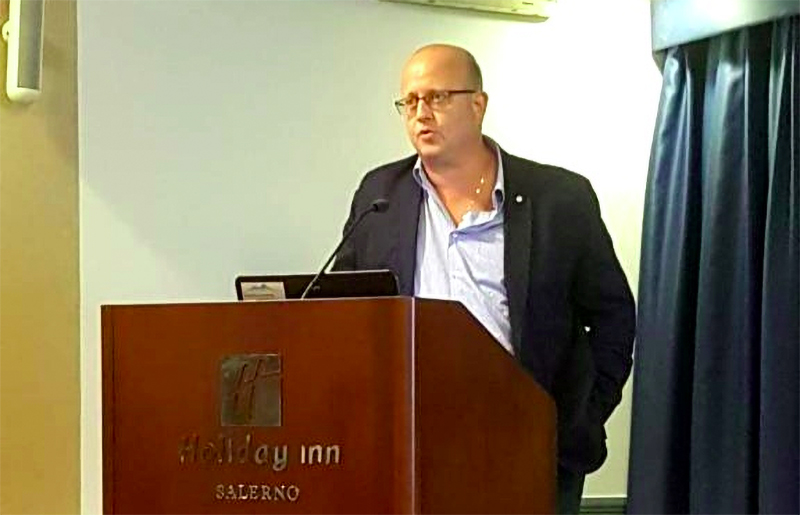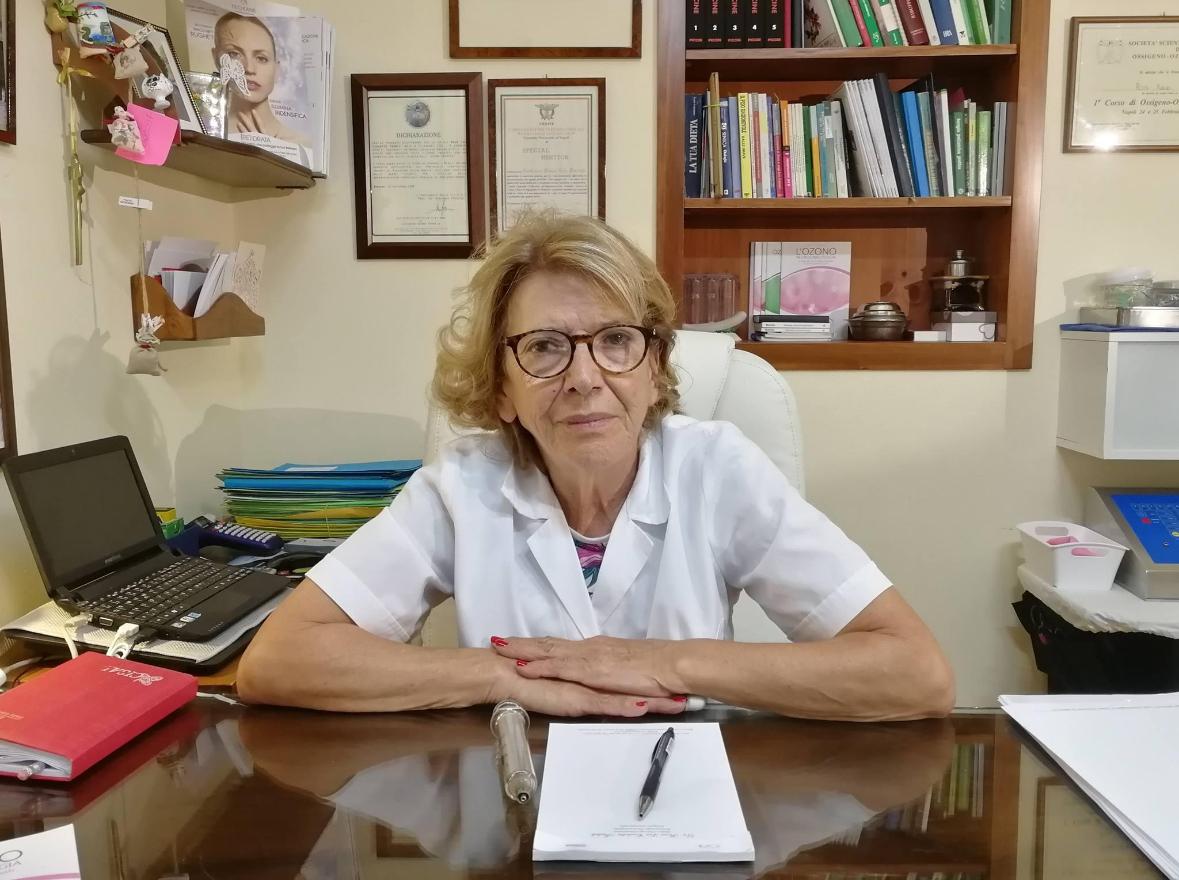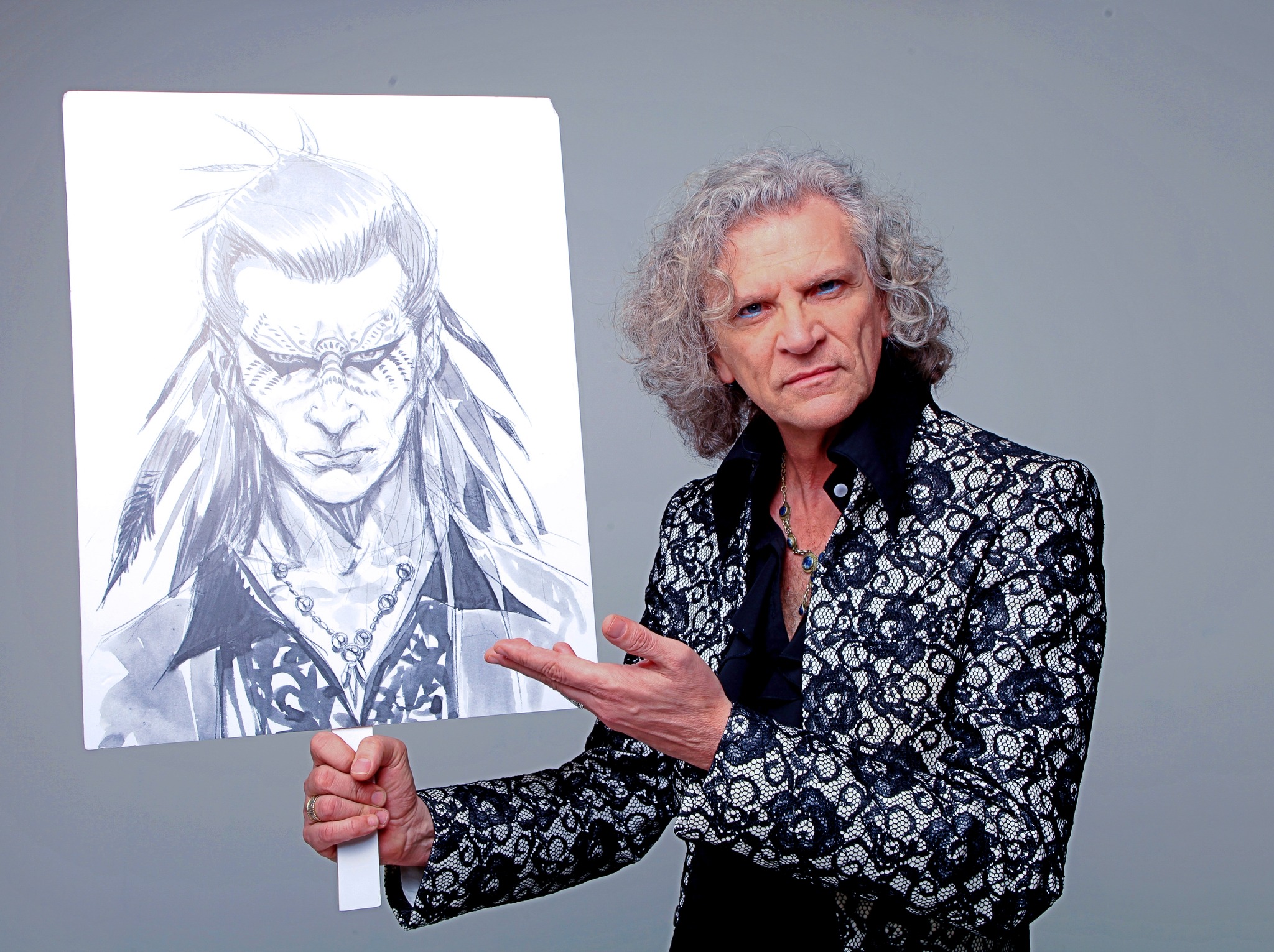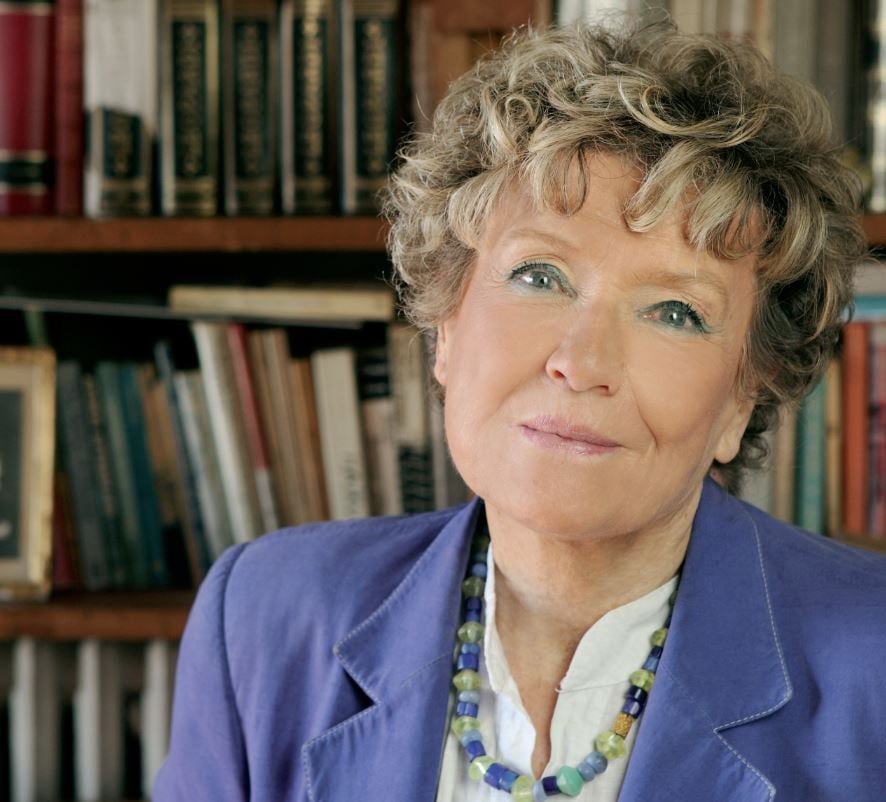Oggi ho il piacere di avere al mio fianco e di intervistare il Dott. Saverio Stranges Capo dipartimento di Epidemiologia e Biostatistica alla Western University – Canada.
Qual è stato il percorso che hai seguito per arrivare a ricoprire un ruolo così importante?
Mi sono laureato in Medicina e specializzato in Sanità Pubblica all’Università di Napoli Federico II, poi ho perseguito un Dottorato di ricerca che ho ultimato negli Stati Uniti alla State University of New York in Buffalo dove è iniziata anche la mia carriera accademica. Mi sono poi trasferito in Europa per una posizione di Professore associato nell’Università di Warwick in Inghilterra, dove sono stato per circa nove anni e dove ho ripreso anche l’attività clinica nell’ambito della Cardiologia Preventiva che è anche il mio ambito di ricerca. Ho poi iniziato una carriera più manageriale, perché mi sono spostato per due anni in Lussemburgo dove sono stato Direttore Scientifico del dipartimento di Salute di Popolazione del principale Ente di ricerca del Lussemburgo. Successivamente mi sono ritrasferito oltreoceano, in Canada, alla Western University per ricoprire il ruolo di Capo del dipartimento di Epidemiologia all’interno di una facoltà di Medicina.
Il mio percorso è simile a quello di molti ricercatori italiani nell’ambito biomedico che spesso vanno fuori dall’Italia anche per arricchire il proprio bagaglio professionale e per conoscere altri sistemi. Spesso però capita che questi periodi all’estero, diventino decenni perché, mi dispiace dirlo, ma all’estero si hanno più opportunità professionali che in Italia anche se si spera che le cose possano cambiare presto.
Tu sei un luminare, uno scienziato che si occupa di prevenzione. Che cosa dobbiamo fare per vivere più a lungo ed in salute?
Questa è stata la missione della mia carriera accademica. Da medico mi sono reso conto presto, che è importante curare le malattie con terapie farmacologiche e chirurgiche ma, a mio avviso, ancora più importante è cercare di capire quali sono le cause delle malattie quindi, quali sono le possibilità da un punto di vista preventivo, per interventi di sanità pubblica che possano impedire lo sviluppo di patologia. Io mi occupo in particolare di patologie croniche quindi malattie cardiovascolari, diabete, cancro, malattie neurodegenerative, che sono patologie in aumento in alcune società, come quella italiana e interessano sempre più persone adulte il cui numero è in progressivo aumento. Mi sono reso conto presto, che ero molto più interessato allo studio dei fattori di rischio che non includono soltanto fattori individuali medici, quale possono essere il colesterolo, la glicemia o l’ipertensione arteriosa e in generale gli stili di vita, ma anche l’ambiente sociale e il contesto ambientale che chiaramente hanno un ruolo preponderante spesso anche più importante di fattori individuali. Questo fattore è spesso trascurato anche nell’ambito dei finanziamenti perché ci si concentra sempre sugli epifenomeni del problema e spesso si trascurano le radici più profonde, anche nell’ambito della salute . Per me è stato sempre molto più interessante capire il ruolo del contesto socio ambientale che focalizzarmi esclusivamente sui fattori individuali.
Quali sono i tuoi progetti per l’immediato futuro?
Sono parecchio impegnato nel mio ruolo attuale. Viaggio anche abbastanza frequentemente in diversi posti del mondo, abbiamo programmi di master e collaborazione in Africa, nel Continente Asiatico, in Europa e in Sud America.
Il mio sogno, la mia ambizione, sarebbe poter restituire qualcosa al territorio e alla comunità dove sono cresciuto e mi riferisco soprattutto al sud Italia, di cercare di instaurare delle collaborazioni con Università locali ed anche valutare la possibilità di creare delle scuole estive, delle summer schools, nell’ambito della ricerca sull’invecchiamento in salute o sulla longevità. In alcune regioni meridionali, la Calabria, la Campania e la Sardegna ci sono dei cluster di longevità, abbiamo percentuali di ultracentenari molto alte, al di là dei discorsi ovviamente di stili di vita, in particolare l’alimentazione, la dieta mediterranea, il fattore comune che lega queste comunità è il tessuto sociale che spesso protegge le persone anziane dall’isolamento, per esempio dai problemi di salute mentale che poi possono accelerare per esempio, il decorso di patologie croniche come la malattia cardiovascolare ma anche la malattia neurodegenerativa e mi riferisco in particolare alla demenza che è sempre più comune in società dove la proporzione di persone anziane è in aumento.
Tu sei meridionale, sei Italiano, cosa porti della tua italianità in giro per il mondo
Ti ringrazio di questa domanda. Ci sono, non so se sia un bene o un male, migliaia di ricercatori italiani che lavorano nelle Università straniere. Da uomo del sud, posso dire che noi abbiamo la capacità di adattamento a diversi contesti. Io ho vissuto gli ultimi 16 anni in cinque Paesi diversi e non è sempre semplice adattarsi a nuove culture, a nuovi sistemi, però la nostra flessibilità di uomini del sud abituati a fronteggiare problemi difficili, ci dà quella elasticità mentale che ci permette di adattarci e anche di farci voler bene, stimare e rispettare in contesti stranieri.
Porto con me anche il retaggio storico e culturale di un Paese che ha contribuito anche allo sviluppo nel mio ambito, nella medicina. Posso dire che in generale c’è molto apprezzamento per l’Italiano soprattutto nell’ambito della ricerca in contesti stranieri. Porto con me, la capacità di socializzare e di interagire con i miei colleghi perché, nel mio ruolo di capo del dipartimento, cerco di essere inclusivo, ma anche di stabilire rapporti collaborativi con i miei colleghi e questo spesso viene apprezzato al di là delle competenze professionali.
Interview with Saverio Stranges (english version)
Today I have the pleasure of having by my side and interviewing Dr. Saverio Stranges, Head of Department of Epidemiology and Biostatistics at Western University – Canada.
What was the path that you followed to be able to cover such an important role?
I graduated in Medicine and specialised in Preventive/Public Health Medicine at the University of Naples Federico II, then I pursued a PhD that I completed in the United States at the State University of New York in Buffalo where my academic career began, before moving back to Europe for a position as associate professor at the University of Warwick, in England where I lived for about nine years, also resuming the clinical activity in the field of preventive cardiology which is also my research area. From England, I then started a career more focused on managerial aspects because I moved for two years in Luxembourg where I was Scientific Director of the Department of Population Health of the main research institution of Luxembourg. I then moved overseas in Canada at Western University to serve as head of Department of Epidemiology within a medical school.
We could say that my path is similar to that of many Italians, especially researchers in the biomedical field that often move out of Italy to enrich their professional experience and to learn about other systems. It often happens that these periods become decades because, I am sorry to say, there are professional opportunities that are harder to find in Italy, even though hopefully things can start to change soon in our country.
You are a luminary, a scientist who deals with prevention. What should we do to live longer and healthier?
This was the mission of my academic career because I realised that, as a doctor, it is obviously important to treat diseases with pharmacological and surgical therapies, but, in my opinion, it is even more important to try to understand what are the causes of diseases, hence, what are the possibilities from a preventive point of view for public health interventions that can prevent the development of pathologies. I deal in particular with chronic pathologies, therefore from cardiovascular diseases to diabetes also including cancer and neurodegenerative diseases that are more and more common pathologies in a society where the proportion of adult people is growing continuously. I soon realised that I was far more interested in the study of risk factors that not only include individual, medical factors, for example cholesterol, blood sugar or arterial hypertension. In fact, in these cases lifestyle in general and also the social environment clearly play a predominant role, often even more important than individual factors, because in a way they influence individual behaviour. This is often a neglected area because we always focus on the epiphenomenon of the problem often ignoring the deepest roots, so for me it has always been much more interesting to understand the role of the socio-environmental context compared to focusing exclusively on individual factors.
What are your plans for the immediate future?
I am very busy in my current role. I also travel quite frequently in different parts of the world. We have master’s programs and collaborations in Africa, Asia, Europe and in South America.
My dream would be to return something to the territory and the community where I grew up and I refer mainly to southern Italy, to try to establish collaborations with local universities and also to evaluate the possibility of creating summer schools, in the context of research into healthy ageing or longevity, given that in some southern regions, including Calabria, Campania and Sardinia there are longevity clusters. We have percentages of very high ultra centenarians and the common factor that binds these communities, apart from the lifestyle, where nutrition plays a fundamental role, since the Mediterranean diet has always been a very relevant field of research, is the social fabric that often protects older people from isolation, for example mental health problems that can then accelerate the course of chronic diseases such as cardiovascular disease but also neurodegenerative diseases. I refer in particular to the dementia that is increasingly common in societies where the proportion of older people is increasing.
You are southern, you are Italian, what do you bring of your Italian spirit around the world?
I thank you for this question that is probably shared amongst many Italians. There are, I do not know if it is good or bad, thousands of Italian researchers working in foreign universities. As a man of the south, we bring that ability to adapt to different contexts. I have lived the last 16 years in five different countries and it is not always easy to adapt to new cultures and new systems, but our flexibility of southern men, also often used to face difficult problems, gives us that mental flexibility and the ability to adapt that also makes us be appreciated, estimated, and respected in foreign contexts.
Apart from this, there is also a historical and cultural heritage of a country that has contributed to the development in my field, in medicine. I can say that in general there is much appreciation for Italy and Italians especially with regard to research in foreign contexts. I also have the ability to socialise and interact with my colleagues, because in my role as head of the department I try to be inclusive but also to establish collaborative relationships with my colleagues, and this is often appreciated beyond professional skills.







